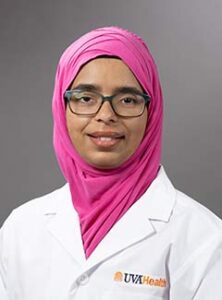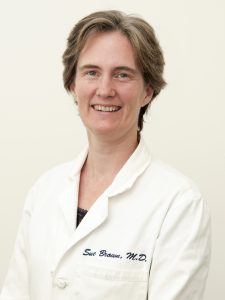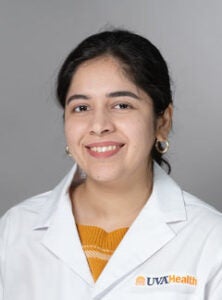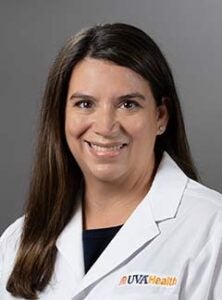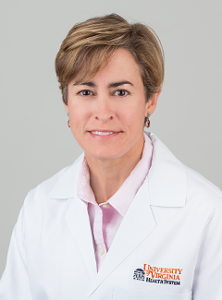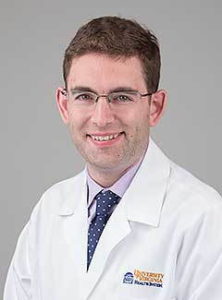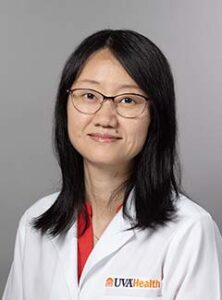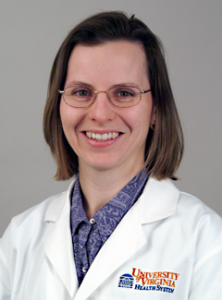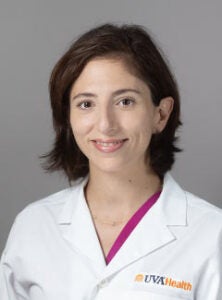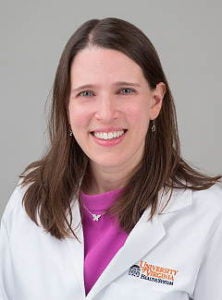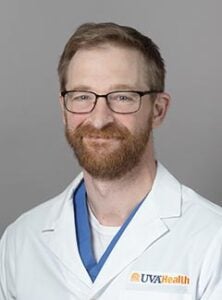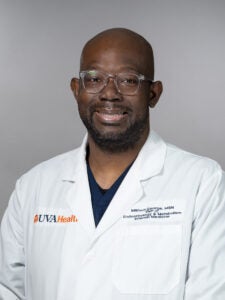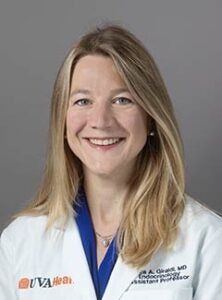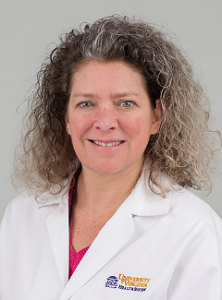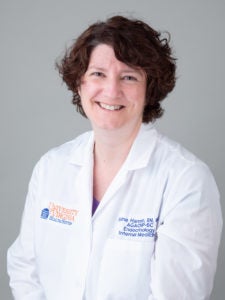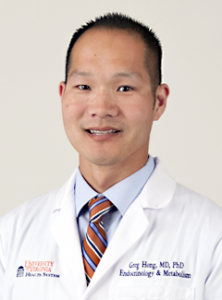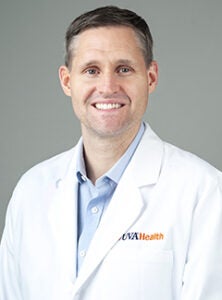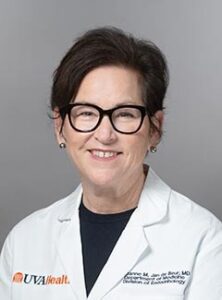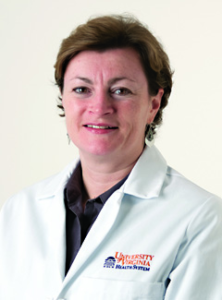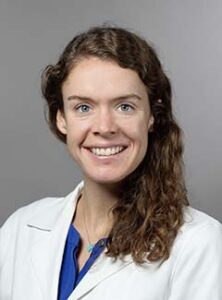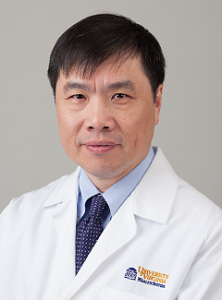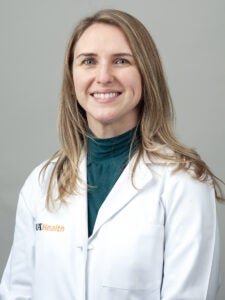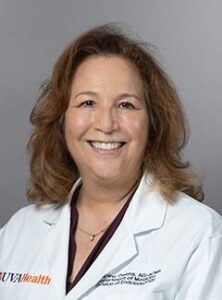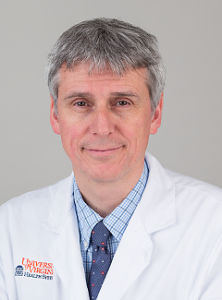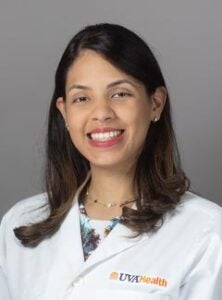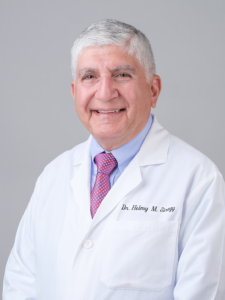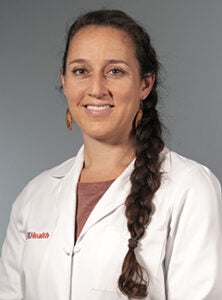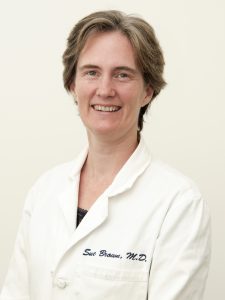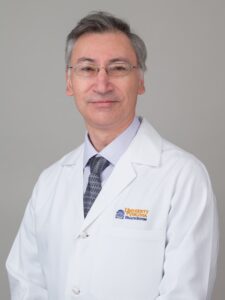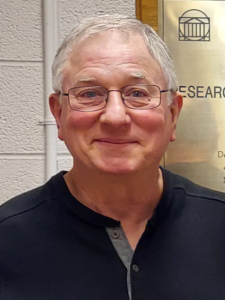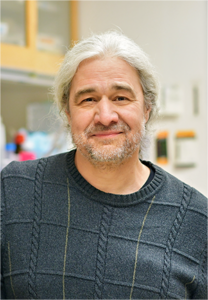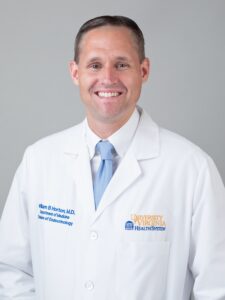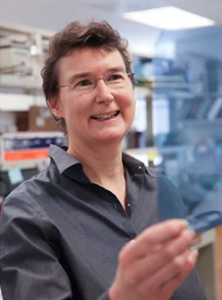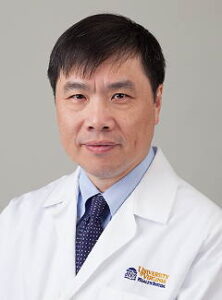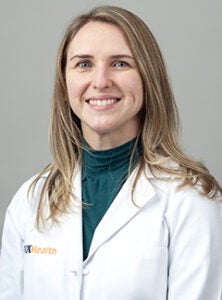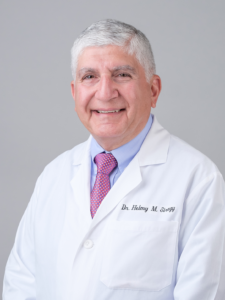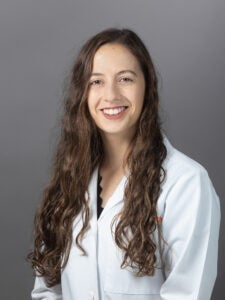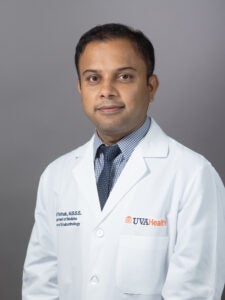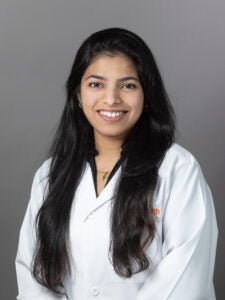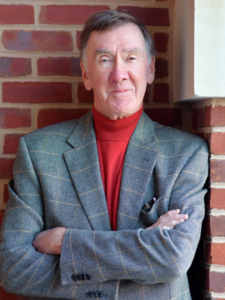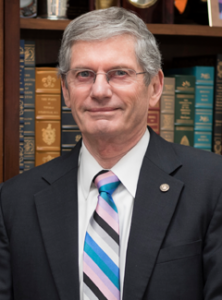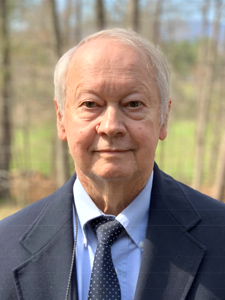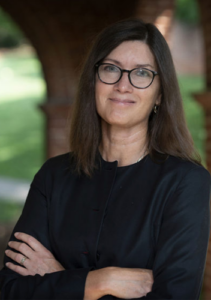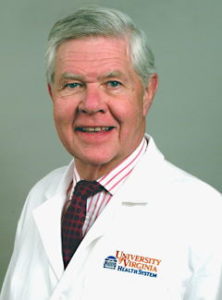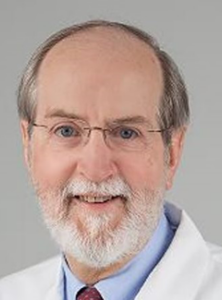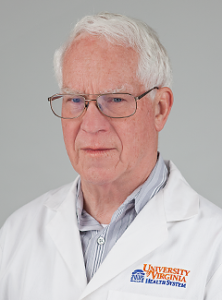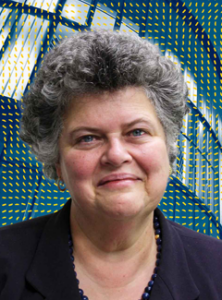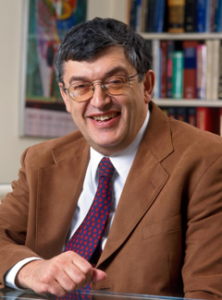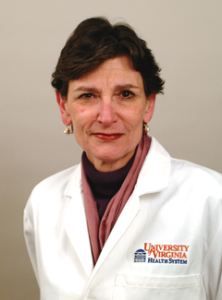Faculty & Fellows
Faculty and Fellows
The Division of Endocrinology and Metabolism has a rich history and tradition of excellence in patient care, education, and research. It remains one of the finest endocrinology divisions in the country. We currently have 30 faculty members (7 full professors, 6 associate professors, 9 assistant professors, 9 advanced practice providers, 9 emeritus professors, and 6 endocrine fellows). The Division boasts many previous leaders in national professional societies, including three presidents of the Endocrine Society (Margaret A. Shupnik, PhD, Robert M. Carey, MD, and Richard J. Santen, MD), one president of the American Diabetes Association (Eugene J. Barrett, MD, PhD), one president of the Pituitary Society (Mary Lee Vance, MD), and one president of the American Society for Bone and Mineral Research (Suzanne Jan De Beur, MD). Our faculty members strive to provide the best possible care to patients with various hormonal and metabolic disorders and the best training for the next generation of physicians and scientists and make cutting-edge scientific discoveries in clinical and basic endocrine research.
Endocrinology & Metabolism Clinical Faculty
Links take you to the UVA Health System Find a Doctor Directory. Use the back button to return to the Division of Endocrinology website.
-
Samina Afreen, MD
Assistant Professor
-
Sue A. Brown, MD
Professor of Medicine
Research
-
Sarah Chhabra, MD
Assistant Professor of Medicine
-
Julie C Costin, FNP
Nurse Practitioner
-
Margaret Crook, MD
Assistant Professor of Medicine
-
Silas A. Culver, MD
Assistant Professor of Medicine
Research
-
Han Ding, FNP
Nurse Practitioner
-
Christine A. Eagleson, MD
Associate Professor of Medicine
-
Layal Esper, MD
Assistant Professor of Medicine
-
Heather Ferris, MD, PhD
Associate Professor of Medicine
Research
-
Benjamin Floyd, AG-ACNP
Nurse Practitioner
-
Milford George, FNP
Nurse Practitioner
-
Erica A. Giraldi, MD
Assistant Professor of Medicine
-
Michele Hamrick, ANP, MSN
Adult Nurse Practitioner
-
Elaine Hannah, RN, MSN, AG-ACNP
Nurse Practitioner
-
Gregory Hong, MD, PhD
Associate Professor of Medicine
Fellowship Program Director
-
William (Ben) Horton, MD
Assistant Professor of Medicine
Associate Program Director
Research
-
Suzanne Jan De Beur, MD
Professor of Medicine
Chief, Division of Endocrinology and Metabolism
-
Jennifer Kirby, MD, PhD
Associate Professor of Medicine
-
Ellen Upton Lam, PA
Physician Assistant
-
Zhenqi Liu, MD
Professor of Medicine
Research
-
Kaitlin M Love, MD
Assistant Professor of Medicine
Research
-
Christine Owens, AG-ACNP
Nurse Practitioner
-
Ralf M. Nass, MD
Assistant Professor of Medicine
-
Lisette Rodriguez Camejo, MD
Assistant Professor of Medicine
-
Helmy M. Siragy, MD
Professor of Medicine
Research
-
Meaghan Stumpf, MD
Associate Professor of Medicine
-
Jessica A. Wunderston, FNP
Nurse Practitioner
Endocrinology & Metabolism Research Faculty
Our clinical faculty members have a wide range of clinical and research interests, and the division has active research programs with state-of-the-art facilities. Please explore the links below to discover the research in some of our Endocrine labs.
2025-2026 Endocrinology Fellows
SECOND-YEAR FELLOWS
-
Melisa Esposito, MD
Medical School: Universidad Adventista del Plata Facultad de Ciencias de la Salud
Residency: Kettering Medical Center
-
Amrit Pathak, MD
Medical School: Institute of Medicine Tribhuvan University
Residency: University of Maryland Medical Center
-
Swetha Priyadarshan, MD
Medical School: P.S.G. Institute of Medical Sciences and Research
Residency: Baptist Memorial Hospital
FIRST-YEAR FELLOWS
-
Jonathan Ambut, MD, MS
Medical School: University of Miami
Residency: Mt Sinai Medical Center
-
Jennifer Poncelet, MD
Medical School: University of Iowa
Residency: Case Western Reserve
-
Zhaoyang (Vill) Wen, MD
Medical School: Chicago Medical School at Rosalind Franklin University
Residency: UCSF St. Mary’s
-
Eugene Barrett, MD
Professor Emeritus
-
Robert Carey MD
Professor Emeritus
-
Williams Evans, MD
Professor Emeritus
-
Susan Kirk, MD
Professor Emeritus
-
John C. Marshall, MD PhD
Professor Emeritus
-
Anthony McCall, MD PhD
Professor Emeritus
-
Richard J. Santen, MD
Professor Emeritus
-
Margaret Shupnik, PhD
Professor Emeritus
-
Michael Thorner, MBBS
Professor Emeritus
-
Mary L. Vance, MD
Professor of Medicine and Neurosurgery Emeritus
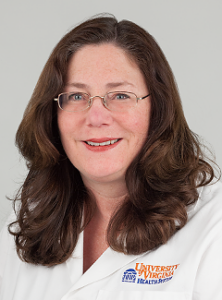 We collectively express our profound sadness at Dr. Stacey Anderson’s September 26, 2021, passing. Dr. Anderson has been a much-beloved part of the endocrine family since 1995. She is survived by her husband, four children, and many other family members, friends, and colleagues who greatly love and respect her.
We collectively express our profound sadness at Dr. Stacey Anderson’s September 26, 2021, passing. Dr. Anderson has been a much-beloved part of the endocrine family since 1995. She is survived by her husband, four children, and many other family members, friends, and colleagues who greatly love and respect her.
We’ll always remember Dr. Anderson as a brilliant but utterly unassuming person. She was a serious person, but she was always kind and engaging, and we often saw how she could be playful in an understated and good-humored way. Because she generally avoided the limelight, many didn’t fully recognize how accomplished she was. Here we summarize her outstanding career as a small way to honor her memory.
——–
Dr. Anderson (Stacey) received her B.S. degree (molecular biology) from Vanderbilt University in 1988 (magna cum laude, Phi Beta Kappa). She attended medical school at Vanderbilt (1998-1992), and her early aptitude for research was acknowledged in 1991 by the American Federation for Clinical Research Student Research Award. Fortunately, Dr. Anderson matched at UVA for Internal Medicine Residency (1992-1995) and stayed at UVA for her Endocrinology and Metabolism Fellowship training (1995-1998). Her initial area of research interest is related to estrogen neuromodulation of the growth hormone axis. In 1998, she became a faculty member and received a highly-coveted NIH General Clinical Research Center Clinical Associate Physician (CAP) award—a precursor to the K23 career development award. Over time, her research interests shifted towards diabetes: algorithmic glucose control with hyperinsulinemic-euglycemic and hypoglycemic clamping procedures, continuous glucose monitoring accuracy, artificial pancreas clinical trials, and decision support systems in diabetes management. Dr. Anderson became the medical director of the Center for Diabetes Technology (CDT) in 2010, and she became a Certified Diabetes Technology Clinician in 2013. Largely based on her outstanding research contributions, Dr. Anderson was promoted to Associate Professor of Medicine in 2015. She also received the Department of Medicine Excellence in Research Award that year.
Dr. Anderson was recognized as an international expert in closed-loop (artificial pancreas) systems, as recently evidenced, for example, by her serving as Session Moderator for the 2019 American Diabetes Association Annual Scientific Session entitled “On the Road to Automated Insulin Delivery.” In addition to engaging in substantive collaborative research with the CDT, she participated in the International Diabetes Closed-Loop Steering Committee, the Control to Range Study Group, the International Artificial Pancreas (iAP) Study Group, and the Juvenile Diabetes Research Foundation (JDRF) Artificial Pancreas Project Consortium. Over her career, Dr. Anderson was Principal Investigator (PI) of a multicenter international clinical study (“Systems Approach to Closed-Loop Control at Home,” part of the JDRF Artificial Pancreas Project); was Co-PI of a large National Institutes of Health (NIH) cooperative agreement (“Clinical Acceptance of the Artificial Pancreas: the International Diabetes Closed Loop (iDCL) Trial”); was PI for one U.S. Department of Defense grant, one JDRF grant, five industry grants, and one Icahn School of Medicine at Mount Sinai grant; was Co-Investigator for nine NIH grants, two JDRF grants, and one UVA K12 grant; and was Site PI for three multicenter industry grants. Dr. Anderson published over 50 peer-reviewed clinical research manuscripts, an exceptional publication record given the nature of her clinical research.
Dr. Anderson was also recognized as an outstanding physician specializing in diabetes, diabetes technology, and thyroid disease. She was included in the Best Doctors in America list each year from 2013 to 2020 and was a Castle Connolly Top Doctor in 2019 and 2020. In 2019, she received formal Recognition of Outstanding Patient Experience based on patient survey data indicating performance in the top fourth percentile nationally.
Dr. Anderson was promoted to full Professor in 2021.
——–
Her family has set up a charitable fund to benefit Diabetes Research at the UVA Center for Diabetes Technology, where she was the medical director.

